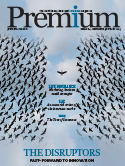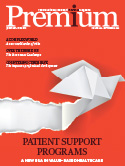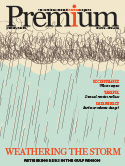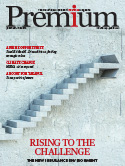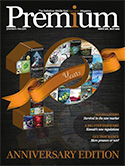ICIEC focuses on growing need for risk mitigation tools

The Islamic Corporation for the Insurance of Investment and Export Credit (ICIEC) recently held a webinar titled “The Role of Credit and Political Risk Insurance in Resource Mobilization in the Post-COVID-19 Era.”
Oussama Kaissi, CEO of ICIEC, in his opening remarks reminded about the ongoing economic impact of the pandemic across member countries – a slowdown in GDP growth, a decline in trade and services and a much slower recovery in African member states. The reality is that rapid and equitable access to COVID-19 vaccines is a prerequisite for a full recovery of global trade and investment. “Trade recovery in 2021,” he maintained, “is expected at best to be fragmented with the usual geographic differences, where developing countries are in the lowest percentile of any recovery. Without requisite de-risking tools such as credit and political risk insurance, resources are being mobilised at higher costs and premiums.”
ICIEC together with its partners have risen to the challenge by innovating cost-effective solutions. Kaissi assured that ICIEC is focused on achieving selective strategic objectives to best support Member Countries, their businesses, and their citizens. ICIEC will continue to support the provision of essential goods and services through the above initiatives he added.
Amadou Hott, minister of Economy, Planning & Cooperation of Senegal and the country’s governor on the board of the IsDB Group, spoke for many when he observed that “in the pandemic period optimising our borrowing has become a crucial exercise.”
“Senegal,” he emphasised, “has benefitted from ICIEC’s insurance to mobilise resources from private lenders given the scarcity of concessional lending. This gives comfort to investors and allows them to be more flexible in extending the maturity on facilities. Thanks to ICIEC’s risk mitigation tools we manage to secure private financing for the rehabilitation of a major water collection system in Dakar. The financial structure was innovative because it enabled Senegal to borrow in local currency.”
ICIEC is involved in several transactions in Senegal. Currently it is supporting the country to procure 0.5 million Johnson & Johnson vaccines, essential goods and medical supplies. “Without ICIEC’s support many of these investments would have taken time to financial close and probably at a much higher cost,” Hott declared.
Similarly, Yerdan Bekkhozhin, vice chairman of KazakhExport, noted its long partnership with ICIEC going back to 2013, and revealed that the two agencies are expanding their cooperation including through an imminent Treaty Share Agreement. “The fact ICIEC is willing to do business with us,” he stressed, “is confirmation that our relationship is moving in the right direction. When we have ICIEC with its financial strength and its wealth of experience supporting us, it helps us to increase our new commitments.”
Stephen Gargiulo, head of Global Markets, ICBC Standard Bank, highlighted the importance of ICIEC for its business in Central Asia and elsewhere: “For us it is about partnership in risk and risk-sharing. One of the things working with ICIEC is that they are extremely flexible and creative. This allows us to adapt more easily to what our needs are as a bank.”
Amine Lahmamsi, deputy director of International Transversal Activities, warned that the lack of access to vaccines “will slow down economic activity in Sub-Saharan Africa. ICIEC and Bank of Africa BMCE have pioneered several structures including the first-ever BMP Murabaha facility in favour of a Nigerian bank, and in Non-Honoring of Sovereign Financial Obligations Risk Cover. We want to increase our collaboration with ICIEC to facilitate more trade finance transactions.”
During the Q&A session, Kaissi stressed that “supporting intra-OIC trade is a priority for ICIEC, which since inception has supported USD28 billion of intra-OIC exports at end 2020.” He was confident that the IsDB Group’s target of achieving 25 percent intra-OIC trade by 2025, and ICIEC’s role in this, was eminently achievable.
The webinar attracted huge interest with almost 300 participants worldwide.









